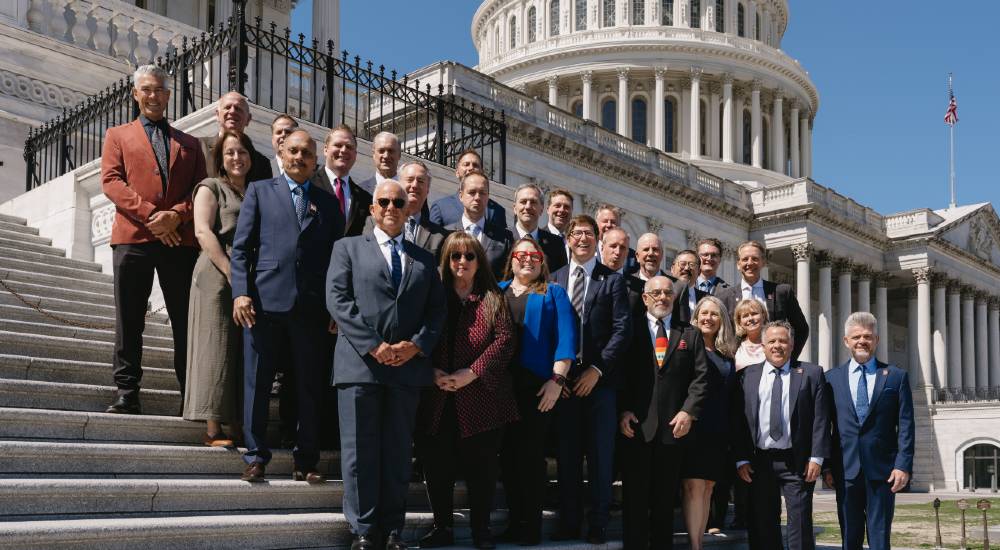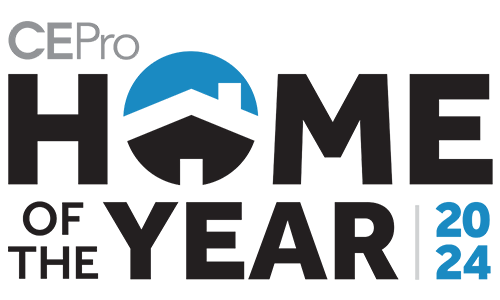The smart home industry stands at a pivotal moment. As technology continues to reshape how we live — from enhancing energy efficiency and security to delivering seamless convenience — the need for strong, unified advocacy has never been more critical. That’s why events like CEDIA’s Smart Home Day on Capitol Hill matter.
They provide a powerful platform for our industry to engage directly with policymakers, shape the future of smart home regulation, and ensure that innovation remains at the forefront.
I recently had the opportunity to participate in CEDIA’s second annual Smart Home Day on Capitol Hill, where I joined fellow industry leaders in discussions with lawmakers about the growing impact of smart home technology.
These conversations reinforced the vital role that smart home solutions play in modern living and underscored the importance of ensuring that legislative policies support, rather than hinder, continued innovation.
The Role of Advocacy in the Smart Home Industry
Smart home solutions are delivering real benefits: increased energy efficiency, better security, enhanced accessibility, and more control for homeowners. But rapid growth also brings the challenge of navigating outdated regulations and a need for policies that ensure interoperability, privacy, and flexibility.
Without industry voices in the room, there’s a real risk that well-intentioned but misaligned policies could slow progress, create unnecessary barriers, or reduce consumer choice. That’s why ongoing engagement with legislators is essential.
It gives us the opportunity to explain what our technology does, how it works in real life, and why modernized policies are necessary for continued advancement.
Key Takeaways from Smart Home Day on Capitol Hill
CEDIA’s Smart Home Day on Capitol Hill provided a unique opportunity to engage with policymakers on key issues shaping the smart home industry.
A major focus was tariffs, where we advocated for an exclusion procedure to protect integrators and their employees from unnecessary financial strain when sourcing sole-source products or products that cannot be easily manufactured in the United States, yet are a critical part of delivering the customer experiences our industry provides.
We also pushed for continued support of the CHIPS and Science Act, reinforcing the critical role semiconductors play in driving smart home innovation. Additionally, we championed the Freedom to Invest in Tomorrow’s Workforce Act (H.R. 1151 / S. 756), which would expand 529 savings plans to cover trade schools and workforce training programs like those offered by CEDIA — helping to bring much-needed new talent into our industry.
One resounding message from lawmakers was clear: voices from industry professionals make the biggest impact. Real stories from real people move the needle on policy change.
If you’re in the smart home space, I encourage you to get involved — reach out to your representatives and advocate for the policies that will help shape our industry’s future.
Collaborative Efforts Build Awareness & Industry Influence
One of the biggest takeaways from the recent advocacy event is the need for ongoing education and collaboration. While smart home technology is becoming more mainstream, many policymakers are still unfamiliar with the nuances of the industry.
The more we can bridge this knowledge gap, the more we can help create a regulatory environment that benefits both consumers and businesses.
Manufacturers, integrators, and industry leaders all have a role to play in shaping the public perception of smart home technology. By working together through organizations like CEDIA, we can ensure that the smart home industry’s voice is heard and that policymakers understand the real-world applications of our technology.
Looking Ahead: The Future of Smart Home Policy
Smart home technology is here to stay, and its role in connected living will only continue to expand. As we look to the future, it’s essential that we remain proactive in our advocacy efforts.
Engaging with lawmakers, participating in industry events, and working together to promote innovation-friendly policies will help ensure that the smart home industry continues to thrive.
AI is one of those areas where policy will be needed to help our industry be competitive while protecting the consumers of our products and services. We began planting those seeds with the lawmakers in our discussions and will be a point we focus on in future discussions with those lawmakers.
At Nice North America, we are committed to driving industry-wide conversations that will help shape the future of smart home technology. Events like Smart Home Day on Capitol Hill are an important step in fostering stronger relationships between the smart home industry and policymakers, ensuring that the next generation of smart home solutions is built on a foundation of innovation, security, and accessibility.
By continuing these discussions and working collaboratively across the industry, we can help build a regulatory landscape that supports growth, empowers consumers, and positions smart home technology as a cornerstone of modern living.
Paul Williams is Managing Director of Home Management Solutions, Nice Group

















